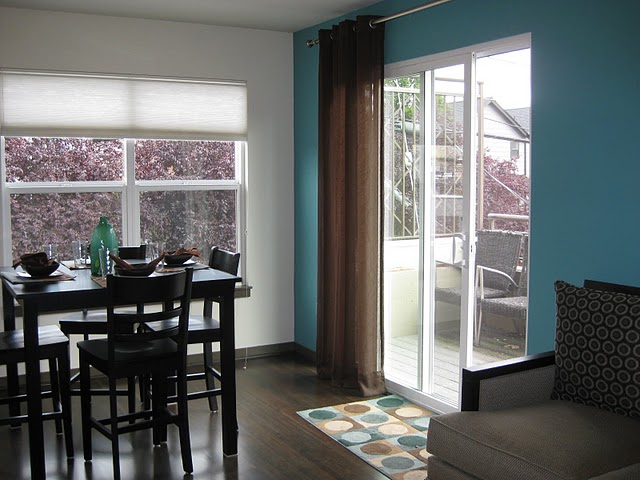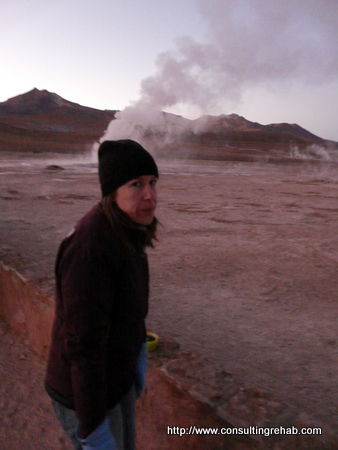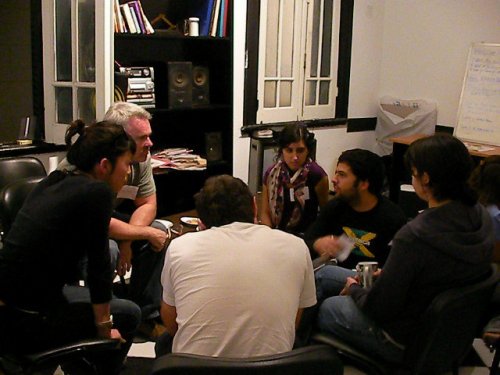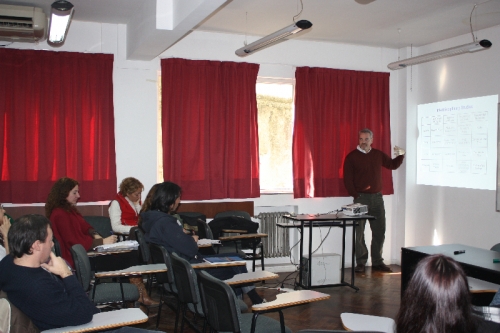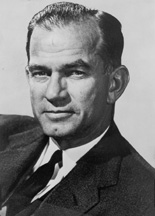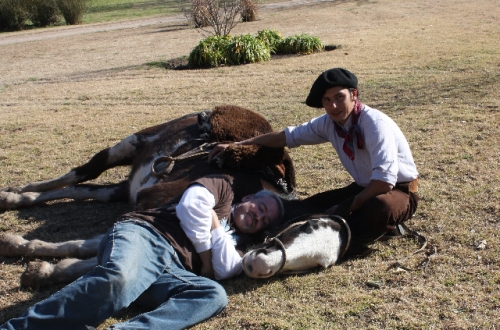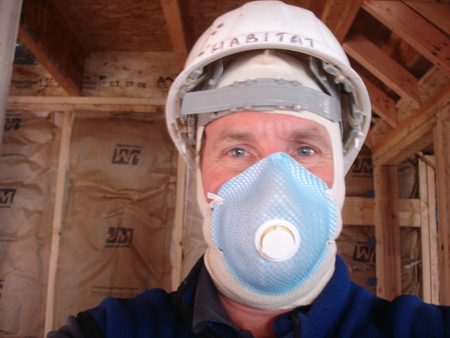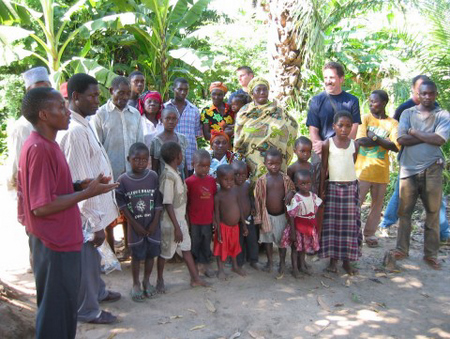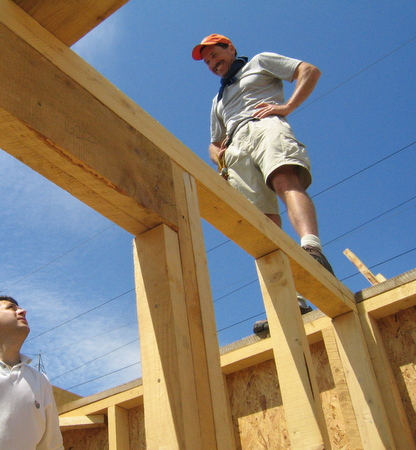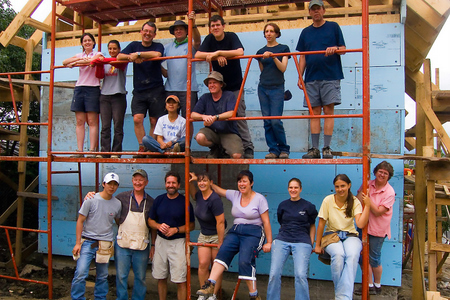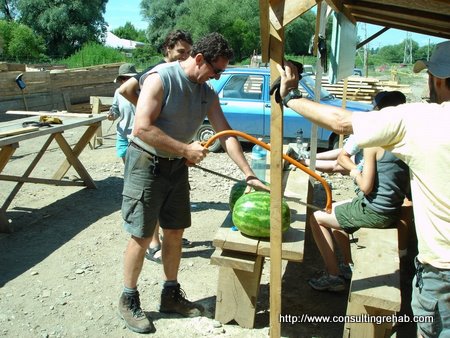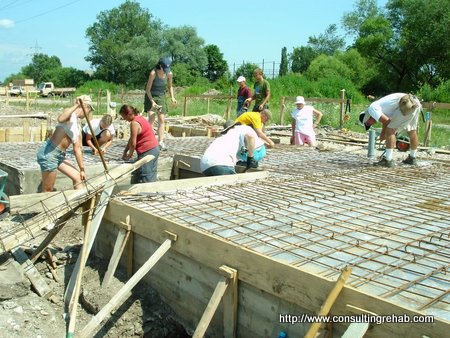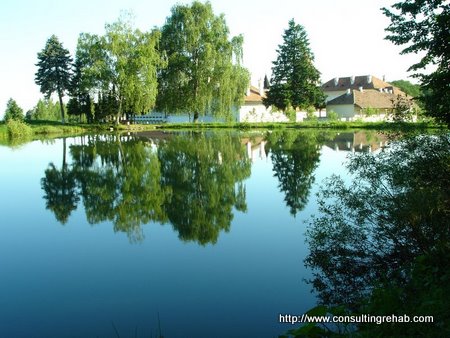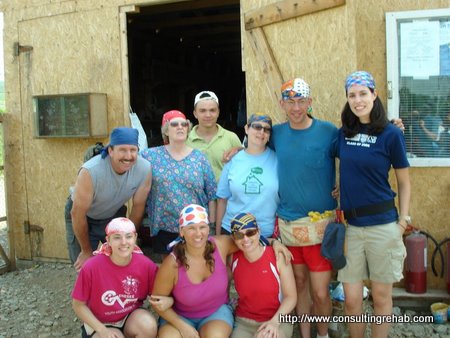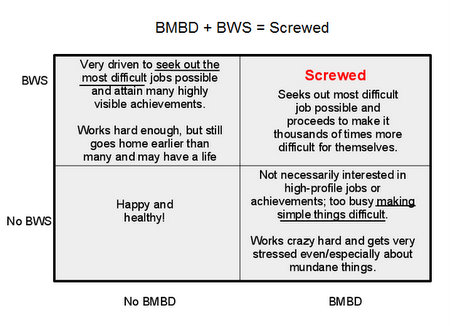Last week we discussed the merits of building career option-value and warned about Brick Wall Syndrome (BWS) and the tyranny of the evil mongeese. This week, we’ll tackle the advantages of being a perfectionist and make the argument that if you are a perfectionist you should try to kick yourself in the head (as perfectly as possible).
Like last week, this will not apply to everyone. The truth is, this one barely even makes sense, is WAY too long and is almost certainly 100% inaccurate. If you do somehow force yourself to read it all the way through though, I hope you can agree with me that, at the very least, some of the pictures are pretty entertaining…
Why
It’s not easy to kick yourself in the head at all, let alone perfectly. It will require a significant amount of practice to get it just right. You may be wondering why I’m suggesting this. It’s mainly because perfectionism makes me cranky, but I’m happy to come up with some other reasons if my crankiness alone is not enough for you (that said, we will likely both end up regretting this).
The basic argument is that kicking yourself in the head provides all of the same compelling benefits as trying to be perfect (e.g., almost impossible to achieve, hurts a lot, not worthwhile, etc.) while at the same time being infinitely more entertaining for others to watch.

See? Entertaining, right?
You might be thinking “This is preposterous, I don’t even know why I’m reading it”
Imagine how I feel–I’m the one writing it. The worst part is it’s just getting started.
If you’ve read the last chapter about career option value, then you already know about Brick Wall Syndrome (BWS) and how it instills in you a drive to manage your career/life by continually seeking out the paths of greatest resistance and pushing yourself as hard as possible to break through all of the brick walls you can find in order to build option value (even though you don’t necessarily have any interest in these options). You’ll also know that if you suffer from BWS, any career choice that looks enjoyable and/or like something that you could really excel at without any pain or suffering will automatically be classified as an utter waste of time by the evil mongeese who are in charge of your life decisions. This much should be fairly obvious. This chapter isn’t about BWS though, it’s about another disorder–perfectionism.
Overview of disorder
At this point, I should clarify that I’m not talking about the benign and mild form of perfectionism in which people take pride in their work and have high quality standards. That’s a positive thing. I’m talking about the more extreme version that keeps people up all night obsessing over things that even they admit are a waste of time. This is the version that inevitably leads to a constant sense of failure and ensures that no matter how much effort you put into something, you always feel like you should have done more . . . and that someone else would have.
Perfectionism isn’t about building option-value by choosing difficult paths. Unlike BWS, perfectionism isn’t concerned with what specifically you choose to do; whatever you choose, this disorder’s primary focus is in making you obsess over doing things as perfectly as humanly possible–regardless of how long it takes, what other important things are going on in your life or if anyone else cares. This could lead you to do any number of things, e.g.:
- Stay up all night making sure that every PowerPoint slide in a large presentation has a perfectly matching color scheme (note: it’s not about consistency–consistency is merely good enough; the perfectionist will likely have painstakingly tried several different schemes to see what looked best)
- Spend 5 days of intense effort to do what should have only taken 1 day (it’s not that you’re slow, you simply weren’t satisfied until it was 5x better than what anyone could have done in 1 day)
- Spend all day trying to come up with a perfect third bullet point here to tie this all together in a comical way (if you are a perfectionist and have suggestions, please leave them in the comments)
Perfectionism and BWS are not the same thing. It’s true that they often come together in a tightly-strung, type-A, fun-to-be-around package, but they are not the same thing. Individually they are bad; together, they are worse. You don’t have to believe me about this; here is the proof:
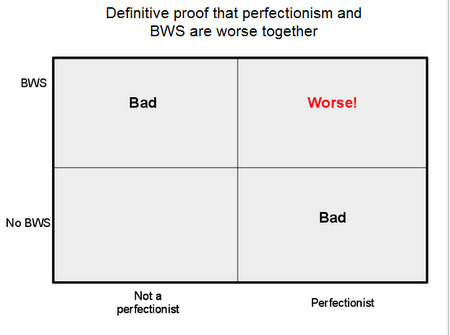
Note: if this 2 by 2 doesn't constitute definitive proof to you, you may not have what it takes to be a management consultant
Self-Diagnosis
Diagnosing yourself to be a perfectionist is usually not difficult. Most perfectionists are fully aware of their disorder and often secretly (or openly) proud of it. It is even easier to diagnose it in someone other than yourself merely by observing their daily activities.
Here are some signs that may indicate you have this disorder:
- You frequently work significantly longer hours than others that have your same job and do not understand how it is that they can manage to go home so early and not be more stressed-out all the time.
- When you point out how proud you are of having gone above and beyond to make sure that all fonts/colors/icons/etc. are perfectly coordinated and aligned to the nearest millimeter (you measured), rather than receiving applause, people just look at you and shake their heads. This seems strange to you. Your conclusion from this is that you will have to try harder next time.
- When other people actually do compliment you on your work, you think they are patronizing you–you know that you should have done more, and if they think that you were good enough, then they really have no idea what they are talking about and should be avoided.
If any of the above symptoms are present, you may be a perfectionist and should continue reading for root causes and home treatment options.
Root causes
If you are an obsessive perfectionist, whether or not you realize it, and whether or not you are proud of it, what you are really suffering from is almost certainly varying degrees of the following two root causes:
1) You are afraid that someone else will judge you to be not good enough
2) You suck at managing competing priorities
Or, if you are confused (which can happen if you’ve been up all night perfecting something), you may be afraid of competing judges not managing someone else’s priorities well enough. If this is the case, see your doctor immediately.
If you are a perfectionist, you are in for a rough time. Whereas the person suffering from BWS is off prioritizing things based on degree of difficulty and perceived rewards, the pattern behind your decision processes is distinct. Due to root cause #1, your main concern is avoiding someone else thinking that you are not good enough. This is extremely stressful and requires constant vigilance. You always have to be on guard. No matter how small the task is that you’re doing, you have no choice but to go above and beyond and make it perfect–regardless of how long it takes (you really hate deadlines). Having to be perfect all the time is a lot of pressure.
This type of extreme perfectionism is primarily about downside protection. You are far more concerned about the downsides of being imperfect than you are motivated by the upsides that might come from doing a good job; unlike someone suffering from BWS, it doesn’t matter to you whether or not what you are working so hard on will lead to any rewards (real or perceived), it just matters that no one finds any errors in anything you do.
There are side-effects. This fixation on downside protection can, at times, make you fear taking risks and prevent you from attempting things that are unconventional or creative (even if you have a spectacular idea: e.g., starting a monster truck rental business). You tend to avoid things that don’t have an established set of criteria for perfection because you know that they are far more likely to result in criticism and failure (though, I think we can all agree that a monster truck rental business would clearly succeed). You may have less fun and work harder than others, but at least you won’t risk being a disappointment.
Who is this person that you are so concerned about letting down? To you, this is an irrelevant question–it does not matter who they are, whether or not you have any respect for what they think or if they even exist. Because it doesn’t matter who they are, we’ll call them Mildred.
If you’re a perfectionist, your priorities are determined by Mildred. One might say that you are Mildred-centric. You are so concerned about letting down Mildred that you will consistently assign exclusive priority to whatever things you think are important to her (even if you are just guessing). In fact, you will often obsess over them so much that you will lose sight of other things that a more rational version of you may suggest are more important (e.g., happiness, loved ones, eating tacos)–this is root cause #2: sucking at managing competing priorities.
Mildred is not the (only) bitch in this scenario
You may be surprised to hear this, but it’s almost certain that Mildred…:
a) Couldn’t care less and doesn’t even know your name (or is some minor character from your past who doesn’t remember you – e.g., your 6th grade English teacher)
or
b) Is in fact a bitch, and realizes how easy it is to manipulate you into doing whatever she wants through pointing out your weaknesses
or
c) Thinks that you actually are good enough – uh oh! Time to find a new Mildred
How you choose your Mildred
Despite your debilitating ailment, you likely still have some people in your life that care about you. These people probably not only think that you are good enough; they may even think that you are great. This automatically disqualifies them from being your Mildred. You have to look for a Mildred that exhibits either A or B from above in order to be sure that you will generate enough anxiety to perpetuate your disorder.
A fun side effect of this is that the people in your life that care about you (and who are likely also the same people that you yourself care the most about) are unable to help you. Due to the very fact that they think that you don’t suck, you will constantly discard any positive things that they ever say to you and instead make it clear to them that Mildred’s opinion is more important to you. This is awesome for them. Fear not, in time these people will go away and you will be completely undistracted and able to focus all of your attention on pleasing Mildred.
Remember, the goal of this disorder is for Mildred to be your taskmaster, and that wouldn’t work very well if you picked a Mildred that was supportive of you. This is why this form of extreme perfectionism is scientifically referred to as BMBD, or Being Mildred’s Bitch Disorder.
It gets worse
If you have BMBD and you have BWS (which often happens due to a failure to vaccinate for these things in infancy), you are really in trouble.
With BMBD alone, your obsessions are more random and tend to fluctuate. Mildred on her own may make you strive to throw the perfect birthday party for your 3-year-old one day, followed by obsessing over the formatting in your monthly report (and not even getting home from the office until after your 3-year-old has gone to bed) the next. It doesn’t really matter what you are doing; her main concern is that you are always perfecting. You may end up sacrificing other things that are important to you while in your Mildred-induced perfectionistic frenzies, but at least there’s a chance that you’ll have devoted some of your energies to things that actually do matter to you.
As proven earlier, it’s much worse if you also have BWS. If you have both, your Mildred instead will be collaborating with the other mongeese to ensure that all of your energies go into attempting to be perfect at things that are extremely difficult and that you are simply not good at. They will pick virtually impossible tasks specifically targeted to your weaknesses (because that’s where the biggest challenges and brick walls are–as mentioned, BWS sucks) and she will make you feel bad about yourself for failing to do them perfectly on your first try.
Focusing all of your energies on trying to be perfect at virtually impossible things which you are in fact not good at is no fun. It’s certainly not as fun as competing in a taco eating contest (the great thing about a taco eating contest is that everyone wins).

You know you want it
Home treatment options for BMBD
Unfortunately BMBD is not curable–as you may have suspected, you will always be Mildred’s bitch. However, there are some things that you can do to alleviate the majority of your symptoms. Similar to BWS, embracing failure is extremely helpful in fighting BMBD–if you let Mildred down enough times, she’ll stop caring so much.
If you aren’t ready to embrace failure, try the following:
Step 1: Admit you have a problem
Like so many things, the most important first step is admitting that you have a problem. BMBD is not just a harmless personality quirk; at its extremities, it holds you back, pushes people away and prevents you from having the life that you want. Upon accepting that this is a real problem, you might be tempted to lash out at Mildred… Don’t – it’s not her fault.
Step 2: Admit that you are the problem
The second step is realizing that Mildred isn’t the problem; you are. It’s true – you can ask anyone that knows you well and they will tell you.
Now that you are horribly depressed, it is time to move on to step #3. If you are not yet horribly depressed, you didn’t do steps 1 and 2 well enough–please repeat until you have perfected them.
Step 3: Perform some Mildred Judo
This step requires some introspection. If you have BMBD, it means that you suck at managing competing priorities and will let everything else slide in order to cater to the ever-changing whims of your Mildred. If you can improve on balancing priorities using a little Mildred Judo, you won’t have to worry about what your Mildred thinks. On the contrary, it is your Mildred that will have cause to worry.
The trick is to make your disorder work for you rather than against you. What you need to do is to pick a new Mildred that has a more macro view of your life… Maybe pick your future self as your new Mildred. Pick a high-level Mildred that is judging you based on how well you live your life across ALL dimensions rather than a small-minded Mildred that gets caught up on minor details and loses sight of everything else. This new Uber-Mildred will have no trouble beating up your current Mini-Mildred and setting a very different tone for what remains of your lifetime of servitude.
Note: If the number of Mildreds mentioned in the preceding paragraph is confusing, just try to remember: Uber-Mildred = good, Mini-Mildred=bad, millions of milling Mildreds mysteriously melting = hard to say. Better?
Pleasing your new Uber-Mildred will require a whole new and much healthier mindset. For instance, Uber-Mildred will be very unhappy with you if you work late and blow off spending time with your spouse. That said, Uber-Mildred will also be unhappy if you do sloppy work and get fired. What’s important to understand is that Uber-Mildred doesn’t require perfection in any one thing in particular, but rather requires that you devote your obsessiveness to trying to be perfect at balancing all of your competing priorities in a way that optimizes your happiness.
With her in charge, it’s not about having the perfectly formated report, it’s about having the best overall life (within which the formatting of your report is merely one of many other dimensions and should be prioritized accordingly). Indeed, pleasing Uber-Mildred is all about getting comfortable with the idea of making sure that you are ‘good-enough’ across all dimensions before you are allowed to expend energy to go for better/great/fantastic/boy-howdy in any one category. This isn’t easy. Uber-Mildred is a harsh mistress and pleasing her will require making trade-offs (especially in any areas that mini-Mildred was particularly obsessed), but pleasing her will ultimately please you. Isn’t that pleasant?
Step 4: Try to kick yourself in the back of the head
I suppose this step is optional, but, as mentioned previously, very entertaining for your friends and family and, depending on how extreme your BMBD symptoms have been, the least you could do is provide a little entertainment to thank them for putting up with you. In fact, if you make it to step 4, please upload a YouTube video and link to it in the comments section below.

I'm not kidding
Note: If you are also suffering from BWS, the above steps will still help you somewhat, but in addition, you will need to seek out and embrace failure (as discussed last week). A good way to make failure a part of your daily life is to travel. Immersion in a foreign culture will almost certainly make you feel like a failure several times a day. Not only will you stop looking for brick walls, you will likely have moments where you are eager to eat Top Ramen for dinner because it means that you don’t have to deal with looking like an idiot with your poor language skills in a restaurant and potentially ordering something that has calf brains in it because you didn’t recognize just one little word in the list of 10 ingredients and assumed it must be something benign like parsley. Not that I have any experience with this.
Disclaimer: The author makes no claim whatsoever to have figured anything important out or to have anything worthwhile to say about this or any other topic. He writes things like this merely for entertainment purposes–mostly his own. You should definitely not construe this as advice or take action based on it–you could end up unemployed in Chile.

